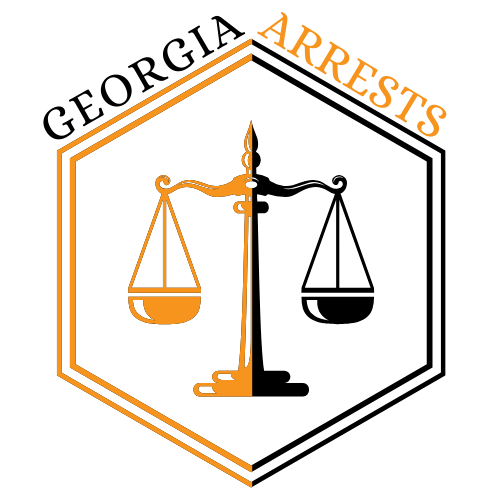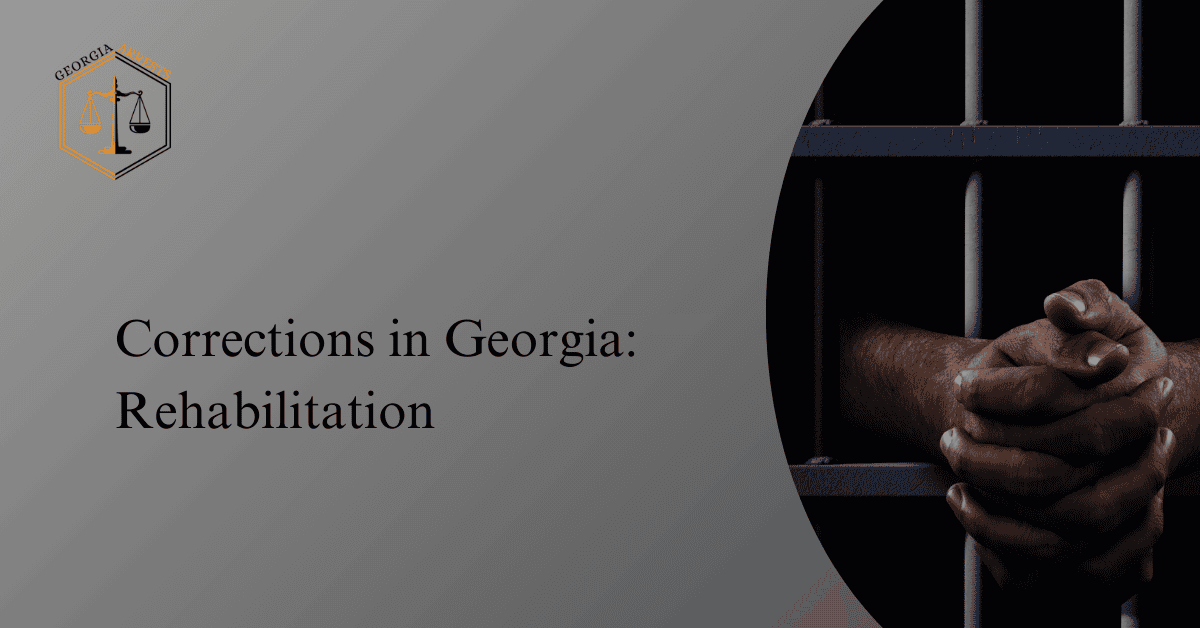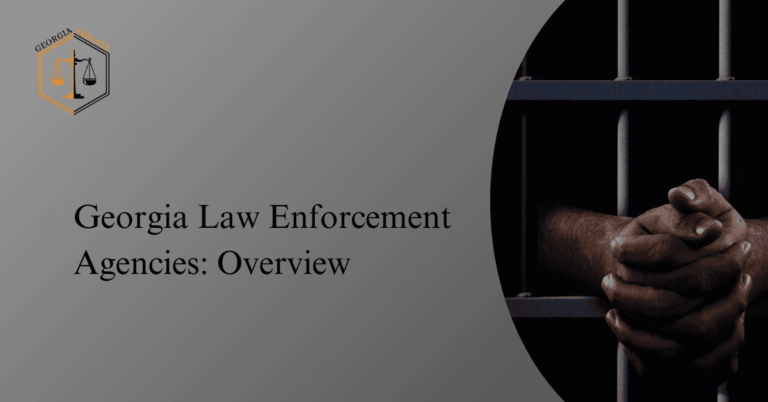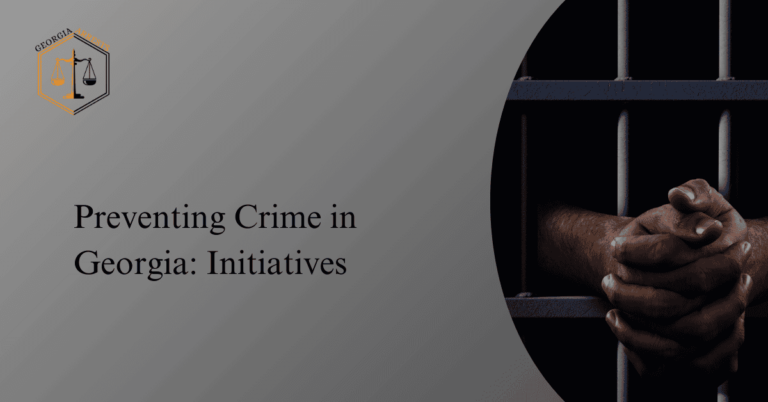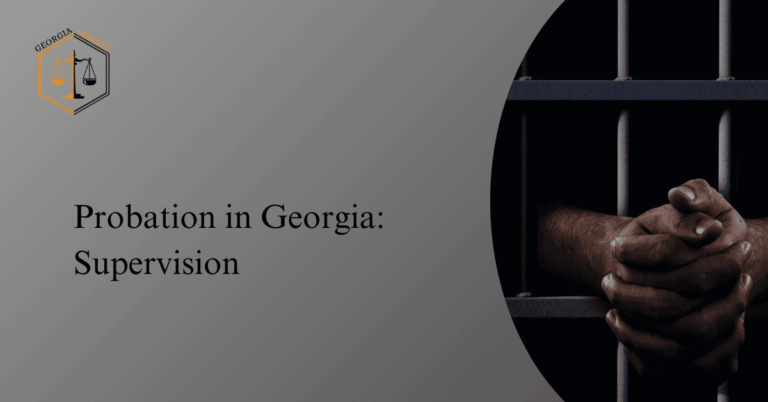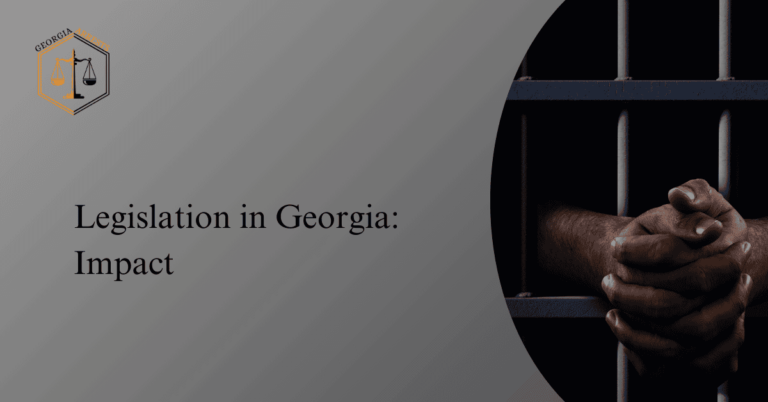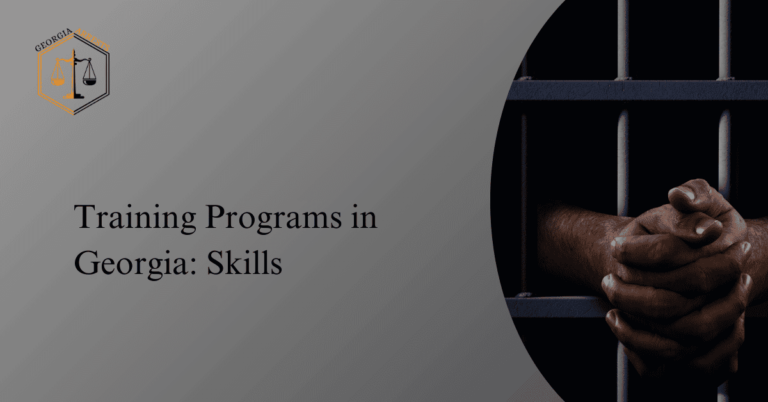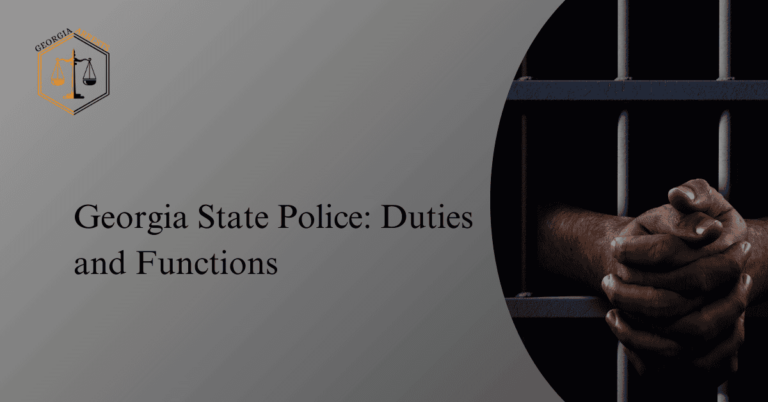Corrections in Georgia: Rehabilitation
Corrections in Georgia: Rehabilitation is a crucial aspect of the justice system, aiming to help individuals reintegrate into society after serving their time. It involves various programs and strategies to support offenders in making positive changes and avoiding reoffending. Through counseling, vocational training, and community support, individuals can learn valuable skills and rebuild their lives.
Rehabilitation in corrections focuses on addressing the root causes of criminal behavior and providing the necessary resources for individuals to make amends and lead productive lives. By offering support and guidance, correctional facilities play a vital role in helping offenders transition back into the community and become contributing members of society. It is a challenging but essential process in creating safer and more inclusive communities for all.
Rehabilitation Programs in Georgia Prisons
Georgia’s Department of Corrections is committed to providing rehabilitation programs for inmates to support their successful reintegration into society. Through counseling, offenders are given the opportunity to address underlying issues that may have led to criminal behavior. By offering therapy and guidance, the department aims to help individuals understand and overcome their challenges, ultimately reducing recidivism rates.
Supporting Offenders Through Counseling
Counseling plays a crucial role in the rehabilitation process for inmates in Georgia prisons. Through individual and group therapy sessions, offenders have the opportunity to address past traumas, mental health issues, and substance abuse problems. By providing a safe space for inmates to explore their emotions and behaviors, counselors help them develop coping mechanisms and positive decision-making skills.
Vocational Training Opportunities for Inmates
One of the key components of rehabilitation programs in Georgia prisons is vocational training. Inmates are given the chance to learn valuable skills in various industries, such as construction, culinary arts, and automotive repair. By acquiring marketable skills, offenders are better equipped to secure employment upon their release, reducing the likelihood of reoffending.
Community Reintegration Strategies for Ex-Offenders
Preparing inmates for reentry into society is essential for their successful rehabilitation. Georgia’s Department of Corrections offers programs that focus on community reintegration, providing ex-offenders with the necessary support and resources to transition back into their communities. By addressing housing, employment, and social support needs, the department aims to create a seamless transition for individuals returning from prison.
Addressing Root Causes of Criminal Behavior
In order to effectively rehabilitate offenders, it is crucial to address the root causes of their criminal behavior. Georgia’s Department of Corrections provides resources for inmates to make amends for their actions and take responsibility for their past behavior. By offering guidance and support, the department helps individuals understand the impact of their actions and work towards positive change.
Providing Resources for Offenders to Make Amends
Restorative justice programs play a significant role in rehabilitation efforts within Georgia prisons. Inmates are given the opportunity to engage in activities that promote accountability, empathy, and restitution. By participating in restorative justice practices, offenders can gain a deeper understanding of the harm they have caused and take steps towards making amends with their victims.
Guidance and Support in Transitioning Back to Society
Transitioning back into society can be a challenging process for ex-offenders. Georgia’s Department of Corrections offers guidance and support to individuals as they navigate this critical period. By providing access to housing assistance, job placement services, and counseling, the department helps former inmates build a foundation for a successful and fulfilling life outside of prison.
Creating Safer Communities Through Rehabilitation
By prioritizing rehabilitation efforts within the corrections system, Georgia aims to create safer communities for all residents. Promoting inclusivity and productivity among former inmates is key to reducing recidivism rates and fostering a sense of belonging within society. Through ongoing support and resources, the state works towards building a more cohesive and supportive community for all individuals.
Promoting Inclusivity and Productivity Among Former Inmates
Encouraging inclusivity and productivity among former inmates is essential for their successful reintegration into society. Georgia’s Department of Corrections focuses on providing opportunities for individuals to engage in meaningful activities, such as volunteer work, education, and community service. By fostering a sense of belonging and purpose, the department aims to empower ex-offenders to lead fulfilling and productive lives post-incarceration.
Frequently Asked Questions
Our FAQ section aims to provide detailed information on commonly asked questions related to Corrections in Georgia: Rehabilitation. Find answers to your queries below.
What is the rehabilitation process like in Georgia?
The rehabilitation process in Georgia focuses on providing inmates with education, vocational training, and counseling to help them reintegrate into society successfully. Inmates are offered various programs to address their specific needs and prepare them for life outside of prison.
Are there special programs for drug rehab in Georgia?
Yes, Georgia offers specialized programs for inmates struggling with substance abuse issues. These programs include counseling, support groups, and treatment plans to help individuals overcome their addiction and maintain sobriety post-release.
How does Georgia support reentry into society after incarceration?
Georgia provides reentry programs that assist individuals in finding housing, employment, and support services upon their release from prison. These programs aim to reduce recidivism rates by offering ex-offenders the necessary resources to rebuild their lives.
Can inmates in Georgia participate in higher education programs?
Yes, Georgia offers educational opportunities for inmates to pursue higher education degrees while incarcerated. These programs help inmates develop new skills, enhance their knowledge, and increase their chances of finding stable employment post-release.
What’s tough for inmates doing rehab in Georgia?
Inmates in Georgia face challenges such as limited access to resources, stigma from society, and the difficulty of reintegration into a community that may not be welcoming. Overcoming these challenges requires a comprehensive approach that addresses the individual needs of each inmate.
Do rehab programs cut reoffending in Georgia?
Studies have shown that participation in rehabilitation programs in Georgia can significantly reduce the likelihood of individuals reoffending. By addressing the root causes of criminal behavior and providing necessary support, these programs play a crucial role in helping inmates successfully reintegrate into society.
